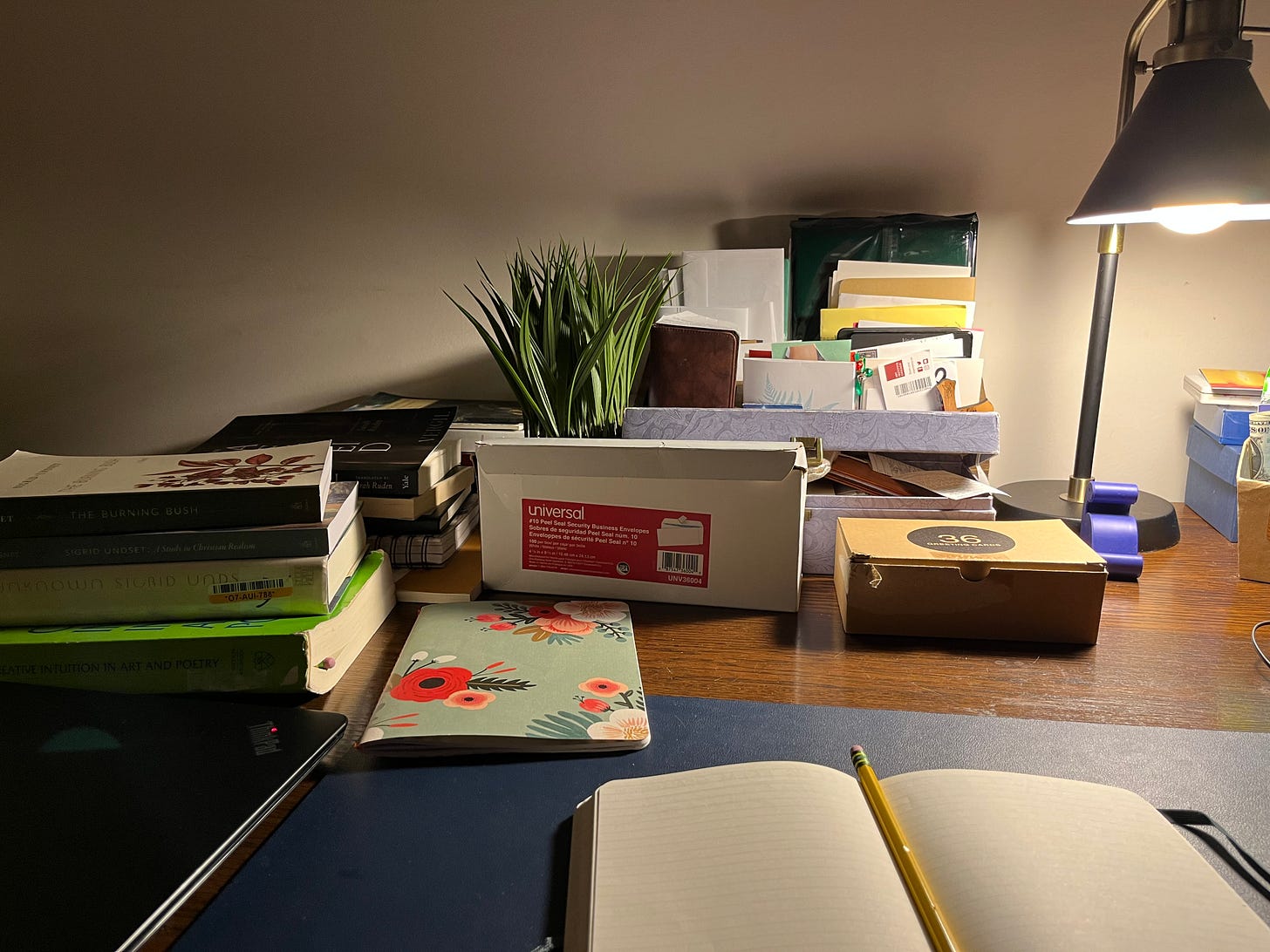Chatty Internet-style writing doesn’t hold all that much interest for me—does it for you?—unless I know the person in real life, or wish I did. Then it becomes more social. Then a laconic terseness doesn’t frustrate, and a meandering reach doesn’t distract. Both can become ways of crossing distance, keeping closeness.
Though I do wish I could know you all more in real life, this project at Depth Perception is only secondarily social. It is meant first as a shared intellectual journey, exploring and deepening an emerging concept we all have an interest in. It is going to borrow some academic language—unavoidably, since that language serves a living need, and helps us chase precision and flee vagueness. If it works the way I want it to, it will be in the best sense impersonal: something that can belong to all of us without being divided or diluted or lost: an actual common good.
At the same time, it seems weirdly inhuman never to cross the fourth wall and address you directly. Chalk it up to a strange, unexpectedly quiet day, one that was supposed to be full of social and cultural life and took a hairpin turn to become full of washing linens and soothing fevers instead. In the space opened by that pivot I have been thinking, “rather more carefully,” about what this project is and what it’s all for.
One of the reasons I’ve never even tried to run a blog before—despite being told I should—and a reason that also explains why I’m severely allergic to social media is the whole enterprise’s ephemeral, transient nature. It’s all “writ in water”: not in the ironic, aspirationally self-contradicting sense, but in earnest truth. Which—look, all that we do as humans is in some sense writ in water. (Not to evoke your grief lightly, but think of the Library of Alexandria; the lost second half of Aristotle’s Poetics; the worlds evoked in A Canticle for Leibowitz, Station Eleven, Forgotten Work, Cloud Cuckoo Land….)
Print literature, in theory “permanent,” is in reality fragile enough. And anything that appears online—as more than one event reminded me this week—is ten times over, only for that reason, all the more ephemeral and easily lost. And we have all learned to hold our time so cheaply: and not in the relaxed way that sculptor Tim Schmalz once told me an artist must, sparing no pains, lavishing attention on meaningful details. Too many times, instead, we just fling time away on anything or nothing, without feeling that it matters much if we do or if we don’t.
It matters; it matters. Our time is so short. And it’s silly to draw a false opposition, as people sometimes try to do, between work done for minds, work done for bodies, and work done for souls. It’s all done for humans, and it can all be referred to the love of one who became human for love of us. And nothing done in the reality of that love is ever a waste of time.




